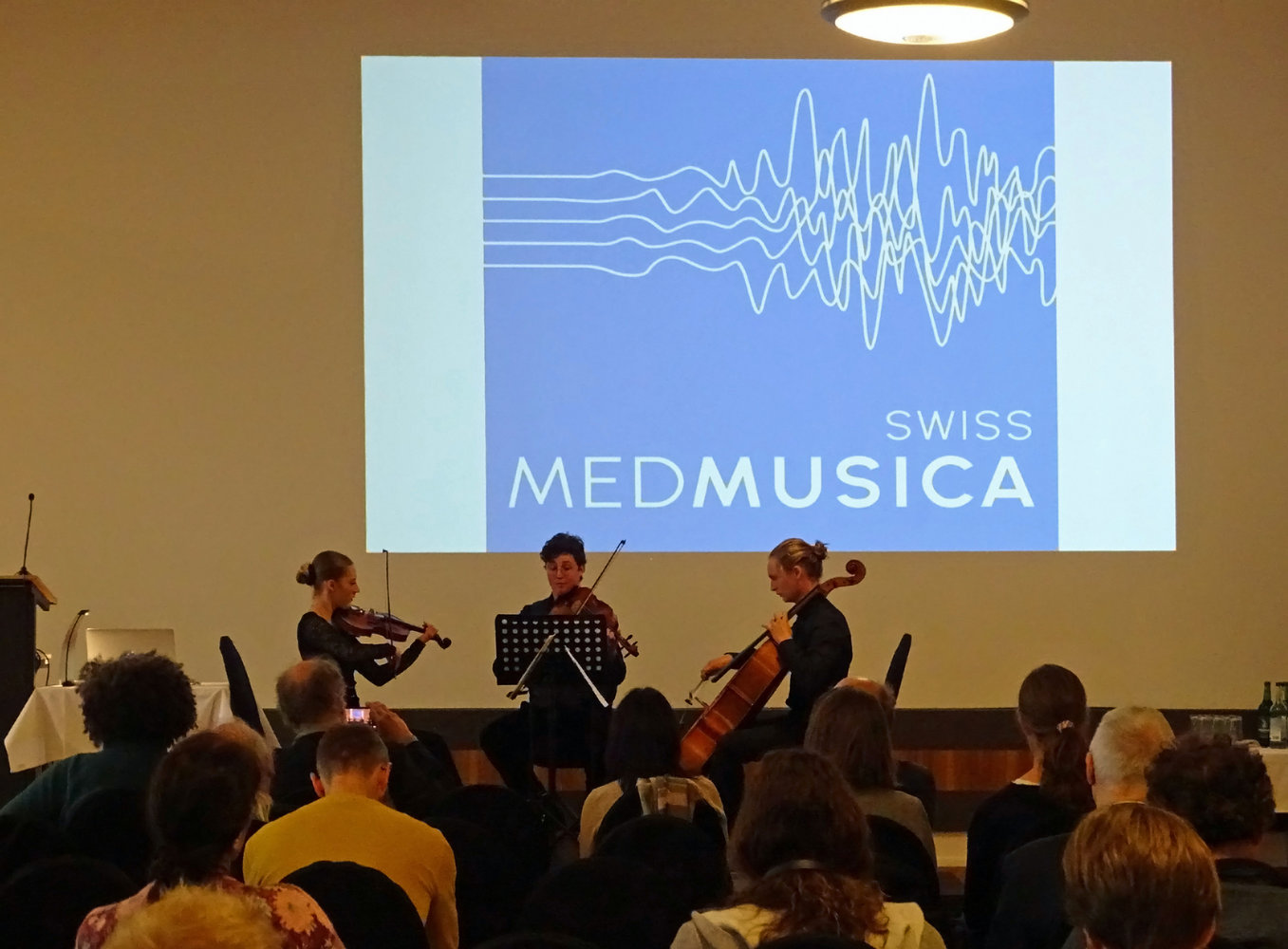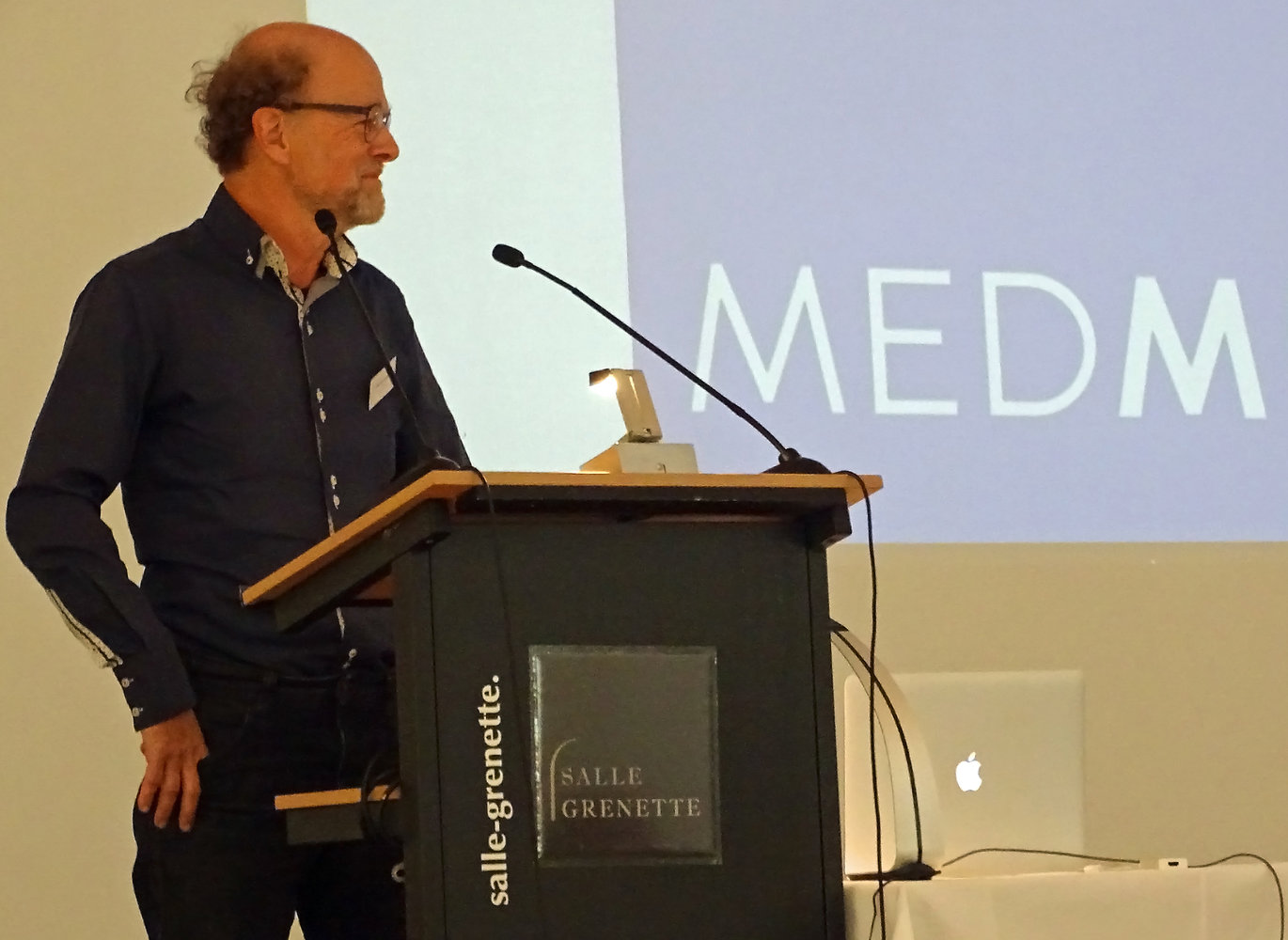Those who feel good stay motivated
This year's Swissmedmusica symposium took place in Fribourg on Saturday, November 11, 2023, under the title "Are you motivated?".

Prevention in music lessons has long been a taboo subject, said Pia Bucher, founding member of the Swiss Society for Music Medicine, today Swissmedmusica SMMin her greeting to the Swiss Performers' Foundation SIS. Nobody wanted to admit that things were not always good in the music profession. However, the pandemic in particular has changed this. Social security also contributes a lot to mental and physical health. She therefore advised those present to use the pension portal for cultural professionals to-be-or-not-to-be.ch and find out about the possibilities.
Self-determined music-making
A common thread running through the first three presentations was the demand for individuality: Anke Grell reminded the audience that music lessons for children and young people are often the only 1:1 time with an adult outside of the family. The responsibility this places on a music teacher is self-evident. Through playful and individually adapted lessons, the motivation to make music and practice can be maintained. Learners are encouraged to find out how much effort it takes to achieve their goals, and they should be allowed to take responsibility for their own practicing according to their level. This creates an intrinsic motivation that is more sustainable than one imposed by the family environment or over-ambitious teachers.
Oliver Margulies startled the audience with the statement that three quarters of all professional musicians have work-related health problems. Cramps, poor posture and one-sided strain often mean that even young musicians suffer from pain. It is therefore important that music students at universities receive individual music physiology support. Those who feel good when making music remain motivated, and those who will work as music teachers in the future can have a positive effect on their students with the necessary knowledge of music physiology.
Carine Tripet Lièvre made a fiery plea for music learners to receive individual support in the event of failure. She described motivation as an engine that is fueled by commitment and effort rather than fuel. Learners recognize which efforts lead to success. If this reward fails to materialize, the teacher must get the faltering engine running again by setting a task that can be solved immediately, e.g. within the next lesson.
According to Antonia Pfeiffer, learned performance anxiety can be countered with positive affirmations, and it can be "tapped away": PEP is the name of the method in which you tap on acupuncture points while mentally placing yourself in an anxiety-inducing or stress-inducing situation.
Emotional engagement brings interaction
As after every presentation, moderator Isabelle Freymond tried to motivate the audience to ask questions at this point. "Could it be because of the lack of practical relevance that there are no questions?" someone asked. - The topics covered all had a practical relevance and a lot of knowledge was imparted in the presentations. However, it was a little tiring that the speakers primarily read out their PowerPoint presentations. Some interactive elements would probably have provided additional motivation.
It was therefore the ideal time for Christian Studler's presentation: he talked about his practical experience as a musician and as a professor of flute. "Fears feel at home in the musician's soul," he said and found it frightening that entire classes at the HKB swallowed beta blockers before every performance. His remedy for instilling performance anxiety is a feedback culture in which students feel accepted for who they are. The focus should not be on forcing performance and fighting against mistakes. Rather, criticism should point out what is already there and what is good and how to build on it.

He was believed to have trained people during his teaching career, not music machines. Interestingly, his presentation triggered a flood of questions. It was a showpiece of how genuine commitment and emotionality can motivate!
The 19th SMM Symposium, which was bilingual and simultaneously translated, was perfectly organized by President Wolfgang Böhler and his team. During the breaks and the aperitif that followed, there was time for lively discussions with colleagues from the fields of music, music education, medicine, psychology and therapy, and at the table-top exhibition, participants were able to find out about new teaching methods, supporting instrument accessories and prevention methods. Prevention has also been at the heart of the organization since it changed its name to Swissmedmusica.
All this motivates us to attend next year's anniversary symposium!







